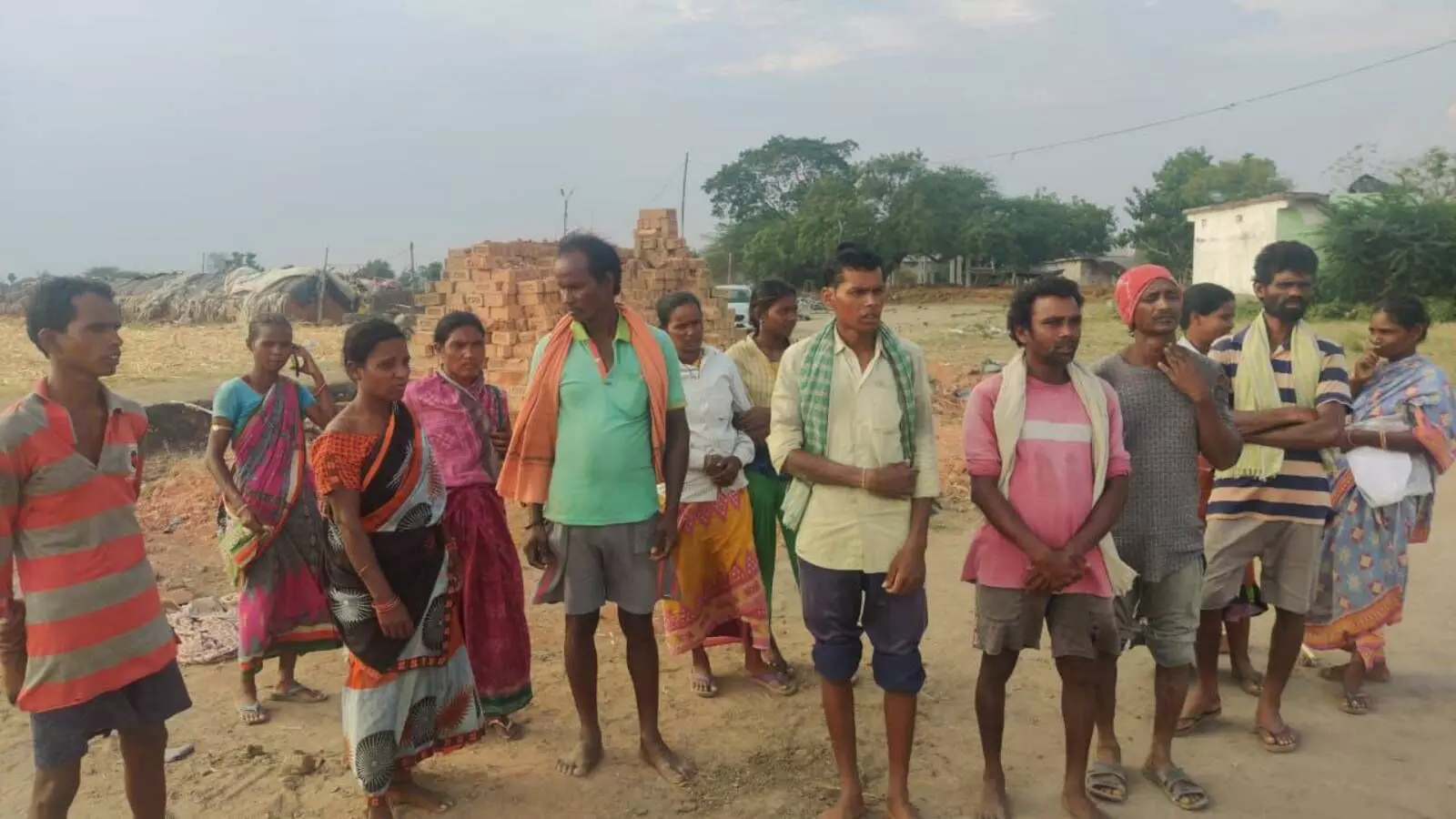Exploitation unlimited: 12 migrant workers from Odisha rescued from brick factory in Mahabubabad
They were made to live in a 3 feet chawl, without proper lighting, and water supply. They were provided with a tank of stagnant water for bathing and cooking
By Nimisha S Pradeep
Hyderabad: Twelve migrant workers including 5 men, 4 women, and 2 girls were rescued from the JMN Brick Factory in Thurrur in Mahabubabad. The workers hail from Balangir, Bargarh, and Sambalpur districts in Odisha. Unable to withstand the exploitation by their owner Manjia, these laborers contacted Sakhal, a Hyderabad-based NGO, for help.
Sakhal founder Rajat Pande along with Assistant Commissioner Labour, Mahabubabad , Jagdeesh Kumar, and Joint Commissioner Labour, Warangal Sunitha visited the factory on May 18 and directed Manjia to pay the dues to the laborers so that they can return home. The owner cleared the dues on May 19 and the laborers left for their homes the same day.
Gross violations
When Rajat and the Labour Department officers visited the factory, they were shocked to see the exploitation of these workers. "They were made to work for at least 16 hours a day and there were no holidays even on Sundays. They were not allowed to take rest in between work. When the parents were not well, the kids were asked to work," says Rajat.
According to the Occupational Safety, Health and Working Conditions (OSH) Code passed by the Parliament in 2020, no worker should be made to work for more than 8 hours a day. Also, for the extra time that they work, they are entitled to an overtime allowance. Besides, they were not given proper accommodation. They were made to live in a 3 feet chawl (a tenement house with minimum facilities) without proper lighting, and water supply. They were provided with a tank of stagnant water for bathing and cooking.
"More importantly, they were not paid regularly. They were not even paid travel fares. The owner also did not maintain any records of advances, working days, overtime hours, etc. They were not given any medical aid. At times, doctors were not allowed to visit them," adds Rajat.
Sakhal representative Laxmikant also highlights the larger problem that these workers, being brought to work in these factories from their hometown itself, is a big scam. "They do not properly register with the concerned district labor authorities, instead private people cheat them," he says.
No action against the owner yet
Assistant Labour Commissioner, Mahabubabad, Jagdeesh Kumar says a report has been submitted on the same to the Joint Commissioner Labour, Warangal under whose jurisdiction the factory falls. "The factory is illegal as the owner of the factory does not have a labor license required for employing migrant workers as per the Inter-State Migrant Workmen Act, 1979," Jagdeesh says. Joint Commissioner, Warangal, says she has yet to go through the reports and decide the course of action.
Apathy of the owner
Jita Majhi had come from Odisha along with her husband and daughter to work at the JMN bricks factory in November 2021. After a few months, her husband Jagdish Majhi fell ill. They consulted a local doctor. However, his health condition did not improve. Owner Manjia neither informed the local hospital nor tried to find a better doctor.
A few days later, seeing his deteriorating condition, he asked them to leave home. Along with family members and acquaintance Paramanand, they were sent to Kazipet railway station. They were supposed to board a train to Odisha. As they were waiting for the train, Jagdish Majhi suddenly developed uneasiness and collapsed. Paramanand called 108 for help. By then it was too late.
The entire family was devastated and called their Manjia. To their surprise, he asked them to dump the body somewhere at the station and asked Paramanand to come back immediately. Hearing the family's request, Paramanand tried contacting a few ambulances to take the body to Odisha. Finally, they got one, and without informing local police or conducting a postmortem and obtaining a death certificate, they took the body and cremated it in their village in presence of a sarpanch.